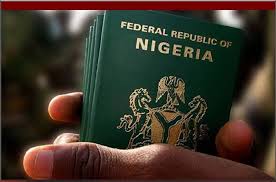


Unlock Hassle-Free Nigerian Visa Success: Essential Guide to Overcoming Application Challenges
Introduction
Foreigners Visa Challenges In Nigeria;
Navigating the Nigerian visa application process can be a daunting experience for foreign nationals due to complex immigration laws and stringent requirements. This guide outlines common challenges faced by visa applicants and provides strategic solutions to overcome these obstacles, ensuring a smoother application process.
Navigating the process of obtaining a Nigerian visa can feel like charting unknown territory without a map. As one of Africa’s most dynamic economies and culturally rich nations, Nigeria draws thousands of visitors each year for business, tourism, education, and family reunions. Yet the path from initial intent to visa approval is paved with obstacles that can trip even the most seasoned traveler. From confusing document requirements to unpredictable processing times and stern authenticity checks, many applicants find themselves ensnared in bureaucratic red tape long before they set foot on Nigerian soil. Understanding the root causes of these delays and pitfalls is the first step toward devising strategies that will carry your application across the finish line swiftly and smoothly.
At the heart of most visa rejections lies documentation confusion. Unlike some countries with standardized global templates, Nigeria’s consulates and embassies may ask for slightly different paperwork depending on your nationality, the purpose of your visit, and even the local office’s internal procedures. Typical requirements include a valid passport with at least six months’ remaining validity, recent passport-style photographs, proof of sufficient funds, detailed travel itineraries, invitation letters from hosts in Nigeria, hotel reservations, and evidence of travel or medical insurance.
Occasionally, you’ll encounter less obvious prerequisites—such as police clearance certificates or proof of residency status in a third country—that can catch you off guard if you aren’t vigilant. Unclear or outdated instructions on official websites often exacerbate the problem, leading to incomplete or improperly formatted submissions that draw instant requests for corrections.
Closely intertwined with documentation woes is the challenge of authenticity verification. Nigeria maintains strict anti-fraud measures to ensure that every visa issued is backed by legitimate supporting papers. Financial documents usually must be stamped and signed by your bank, while invitation letters often require notarization in Nigeria or certification by your host’s local government office. If your academic or professional credentials originate from multiple jurisdictions, you may need apostilles or embassy-level attestations—processes that can take weeks to complete. Coordinating these certifications across different countries, each with its own bureaucratic tempo, demands meticulous planning. A single missing stamp or mismatched signature can trigger a “red flag,” causing your application to stall indefinitely.
Technical hiccups in the online application portal introduce another layer of complexity. Nigeria’s e-Visa system aims to streamline the process but often suffers from slow load times, session timeouts, and confusing navigational menus. Applicants report receiving automated rejection notices when files exceed size limits or when form fields fail to save properly. Even after successful online registration, many consulates require a separate in-person appointment to submit originals, biometric data, and supporting documents—a hybrid model that forces you to juggle virtual and physical steps simultaneously. Appointment slots frequently fill up weeks in advance, so any delay in account verification or email confirmation can push your travel plans into limbo.
When you finally secure an in-person visa interview, cultural and communication barriers may emerge. Consular officers expect clear, concise answers that align perfectly with your submitted documents. Misstatements about your intended length of stay, financial backing, or purpose of travel—even if unintentional—can raise doubts about your credibility. Applicants unfamiliar with Nigeria’s local context may also misinterpret questions or omit details that officers consider crucial, such as ties to their home country or evidence of onward travel plans. Preparing for the interview with mock Q&A sessions and thorough cross-checking of your paperwork will help you present a coherent narrative that reinforces your application’s legitimacy.
Perhaps the most exasperating challenge is unpredictable processing timelines. Standard processing times advertised by consulates range from five working days to six weeks, but real-world turnaround can extend even further during peak travel seasons or political events. Security checks and additional vetting for applicants from certain countries add yet more uncertainty. For those on tight schedules—whether attending a business meeting, enrolling in university, or reuniting with family—the margin for error is razor thin. Without robust contingency plans, last-minute rejections or delays can lead to nonrefundable flight and accommodation losses, not to mention emotional stress.
Financial considerations often catch applicants by surprise. In addition to the base visa fee—typically payable in U.S. dollars via money order, bank draft, or online payment portal—you must budget for ancillary costs such as document legalization, translation services, courier charges for returning passports, and optional expedite fees. Currency exchange rates and bank processing delays can further inflate your budget and timeline. Failing to account for these hidden expenses can strain your finances just as your departure date approaches.
Health-related requirements add another layer of preparation. Nigeria enforces strict immunization protocols against yellow fever, meningitis, and polio. You must present a valid International Certificate of Vaccination (also known as the “Yellow Card”) both when applying for your visa and upon arrival. Scheduling these vaccinations—and ensuring any booster shots are logged—well in advance of your travel dates is essential; some vaccines require several weeks to become effective.
Finally, overarching all these hurdles is the need to remain flexible and informed. Nigeria’s visa regulations evolve periodically in response to geopolitical events, public health concerns, or administrative reforms. Consulates may update their guidelines without extensive public notice, leaving applicants to rely on community forums, expatriate blogs, and direct inquiries for the latest intelligence. Proactive research and engagement with reliable sources can help you anticipate changes and adapt your strategy accordingly.
By unpacking each of these common challenges—documentation confusion, authenticity verification, portal glitches, interview preparation, timeline unpredictability, financial surprises, health mandates, and regulatory shifts—this guide will equip you with practical tactics to overcome every hurdle. Whether you’re planning a short business trip, an extended academic program, or a long-term relocation, the insights and checklists that follow will empower you to navigate Nigeria’s visa process with confidence and efficiency.
Common Challenges
1. Navigating Complex Visa Categories
Challenge: Nigeria offers numerous visa categories, including those for tourism, business, work, study, and residence. Understanding which visa type aligns with an applicant’s purpose can be confusing.
Solution:
– Conduct Thorough Research: Review the Nigerian Immigration Service (NIS) website and relevant resources to understand the visa categories and their requirements.
– Seek Professional Advice: Consult immigration lawyers or visa consultants for expert guidance.
– Contact Nigerian Embassies/Consulates: Engage directly with embassies or consulates for clarification.
2. Documentation and Evidence Requirements
Challenge: Visa applications demand numerous documents, such as financial statements, accommodation details, and invitation letters. The required documentation varies by visa type and can be challenging to compile correctly.
Solution:
– Create a Comprehensive Checklist: Compile a detailed checklist of all required documents.
– Verify Document Authenticity: Ensure documents are current, authentic, and properly certified.
– Maintain Copies: Retain copies of submitted documents for future reference.
3. Meeting Financial Requirements
Challenge: Applicants must demonstrate sufficient financial means to support their stay in Nigeria, which can be particularly challenging for students, tourists, or those without stable income.
Solution:
– Provide Comprehensive Financial Statements: Include bank statements, investment portfolios, and other financial evidence.
– Seek Sponsorship: Obtain sponsorship from family, employers, or institutions willing to support the applicant financially.
– Prepare Additional Documentation: Submit employment contracts, scholarship letters, or affidavits of support.
4. Understanding and Complying with Visa Validity and Duration
Challenge: Misunderstanding the visa’s validity and duration can lead to overstays and legal issues.
Solution:
– Read Visa Stamps Carefully: Pay attention to the visa stamp issued on entry.
– Monitor Stay Duration: Use reminders or apps to track the allowed stay period.
– Apply for Extensions in Advance: Submit extension applications early to avoid legal complications.
5. Scheduling and Attending Visa Interviews
Challenge: Visa interviews can be difficult to schedule, and many applicants struggle to prepare adequately for the interview process.
Solution:
– Schedule Early: Book appointments early to secure preferred dates.
– Prepare Thoroughly: Practice responses to potential questions and ensure all documents are organized.
– Present Confidently: Answer questions honestly and provide requested documentation promptly.
6. Dealing with Processing Delays
Challenge: Visa processing times can be unpredictable due to administrative backlogs or security checks.
Solution:
– Apply Early: Submit applications well before the intended travel date.
– Track Application Status: Use tracking tools provided by the NIS or embassy.
– Follow Up Regularly: Contact the embassy or consulate periodically for updates.
7. Addressing Visa Denials and Rejections
Challenge: Visa denials can occur due to incomplete applications or failure to meet eligibility criteria.
Solution:
– Understand the Reasons: Review denial letters to identify the specific reasons.
– Seek Legal Counsel: Consult with immigration lawyers to explore options for appeal or reapplication.
– Rectify Issues: Address deficiencies and reapply with a stronger application.
8. Overcoming Language Barriers
Challenge: Non-English-speaking applicants may struggle with forms, instructions, and interview questions.
Solution:
– Utilize Translation Services: Use professional translation for documents and communications.
– Seek Assistance: Engage bilingual individuals or consultants for help.
– Use Language Resources: Use online tools to better understand visa-related English terms.
9. Ensuring Compliance with Health and Safety Requirements
Challenge: Some visa categories require medical examinations and proof of vaccinations, which can be challenging to comply with.
Solution:
– Schedule Medical Examinations Promptly: Ensure timely submission of health certificates.
– Keep Vaccination Records Updated: Maintain up-to-date records of required vaccinations.
– Submit Accurate Health Information: Provide truthful health details in the application.
10. Addressing Security Concerns and Background Checks
Challenge: Security checks involve rigorous scrutiny of an applicant’s background, which can lead to delays or denials.
Solution:
– Disclose Information Truthfully: Ensure accurate information is provided.
– Obtain Police Clearance Certificates: Secure certificates to confirm a clean criminal record.
– Be Prepared for Additional Screening: Respond promptly to any additional information requests.
Overcoming Common Challenges: Practical Solutions
1. Conducting Thorough Research
– Review official resources, consult legal experts, and stay informed of regulatory changes.
2. Seeking Professional Assistance
– Hire immigration lawyers, engage visa consultants, and utilize embassy services for application support.
3. Utilizing Technology
– Use online application portals, track applications digitally, and manage documents effectively.
4. Preparing for Interviews
– Practice responses, organize documents, and present professionally during the interview.
5. Addressing Financial Requirements
– Compile comprehensive financial evidence and seek financial assistance where needed.
Conclusion
Securing a Nigerian visa as a foreign applicant can feel like an epic journey filled with bureaucratic pitfalls, technical roadblocks, and unexpected detours. Yet, as we’ve explored throughout this guide, each challenge has a corresponding solution—an approach that transforms potential deal-breakers into manageable tasks. By adopting a methodical, comprehensive strategy, you can turn what initially seems like a labyrinth of requirements into a clear, step-by-step roadmap guiding you from application submission to stamp in hand.
Above all, early preparation is your greatest asset. Begin gathering essential documents at least eight weeks before your planned departure. Reach out to your bank early to secure stamped and dated financial statements; coordinate with your Nigerian host to draft invitation letters that meet consulate specifications; schedule vaccinations well in advance to ensure your International Certificate of Vaccination is valid upon application. Front-loading these tasks creates a buffer that absorbs inevitable delays in certification, courier delivery, or technical troubleshooting.
A robust documentation management system will keep you on track. Develop a master checklist organized by visa type—tourist, business, student, or work—and by consulate location if you have multiple application options. Use digital tools or spreadsheet trackers to log document statuses, deadlines, and follow-up reminders. Clearly label physical copies in separate envelopes or folders to simplify the in-person submission process. When your paperwork is pristine and well-organized, consular officers can verify it more efficiently, reducing the risk of requests for additional information.
When using the e-Visa portal, treat it like a mission-critical project. Ensure you have high-speed, reliable internet access when registering your account and uploading documents. Convert all files to the exact formats and size limits specified by the consulate, and maintain backups on both cloud storage and a USB drive. If the system times out or payment fails, clear your browser cache, switch devices, or try a different payment method. Document every error message—and, if necessary, contact technical support with screenshots and concise descriptions. Persistence and detailed records will help you resolve glitches more quickly.
Interview readiness is equally crucial. Compile a concise briefing sheet outlining your travel purpose, itinerary, financial backing, and ties to your home country. Practice common interview questions with a friend or mentor, focusing on coherent, consistent answers that mirror your submitted documents. Dress professionally and arrive early for your appointment, allowing extra time for security checks and unexpected delays. By demonstrating respect for the process and confidence in your preparations, you signal credibility to the interviewing officer.
Financial planning should extend beyond the base visa fee. Research current exchange rates and payment methods accepted by your chosen consulate. Budget for document legalization fees—both at home and, if required, at the Nigerian embassy in your country—plus translation services if any materials aren’t in English. Factor in courier fees for passport return, optional expedite charges, and small contingencies for emergency situations. Maintaining a clear, itemized budget will prevent surprises that could jeopardize your timeline.
For applicants subject to heightened security screening, gather supplementary evidence proactively. This may include police clearance certificates, letters of recommendation from reputable organizations, or detailed project proposals for business and academic visas. Engaging a qualified immigration consultant or legal advisor—while incurring additional cost—can help you compile dossiers that satisfy even the most stringent vetting requirements, expediting approval.
Staying informed and adaptable is key. Visa regulations can shift with little advance warning, especially in response to public health crises or diplomatic developments. Regularly check official consulate websites, subscribe to mailing lists, and monitor reputable expatriate forums for real-time updates. Establish direct communication channels with consular staff when possible; polite, professional inquiries can clarify ambiguous guidelines and prevent wasted effort.
Finally, retain flexibility in your travel arrangements. Avoid booking non-refundable flights, accommodations, or event tickets until your visa is officially granted. Build extra days into your schedule for potential processing overruns. If you encounter unforeseen delays, many consulates offer expedited appointment slots or emergency processing options—though these often carry premium fees. Knowing these backup pathways in advance can save you from last-minute panic and financial losses.
By integrating these strategies—advanced planning, meticulous document management, technical proficiency with the e-Visa portal, polished interview skills, transparent budgeting, proactive security screening, ongoing regulatory vigilance, and flexible travel arrangements—you transform the Nigerian visa process from a source of stress into a structured, achievable project. Armed with this comprehensive guide, you are now equipped to approach your application with the confidence, clarity, and control needed to secure approval and embark on your Nigerian adventure without unnecessary friction. Good luck, safe travels, and enjoy all that Nigeria has to offer!
. Visa Categories
. Immigration Lawyers
. Visa Consultants
. Financial Requirements
. Documentation
. Visa Validity
. Visa Interviews
. Processing Delays
. Visa Denials
. Language Barriers
. Health Requirements
. Security Checks
Contact Us
Chaman Law Firm today. Our offices are conveniently located in Lagos, FCT Abuja, Ogun State, and the UK. We are readily available to assist you with your legal needs. Whether you require consultation, representation, or ongoing legal support, Chaman Law Firm is your trusted partner.
Call us at 08065553671 or email us at info@chamanlawfirm.com to schedule a consultation.


